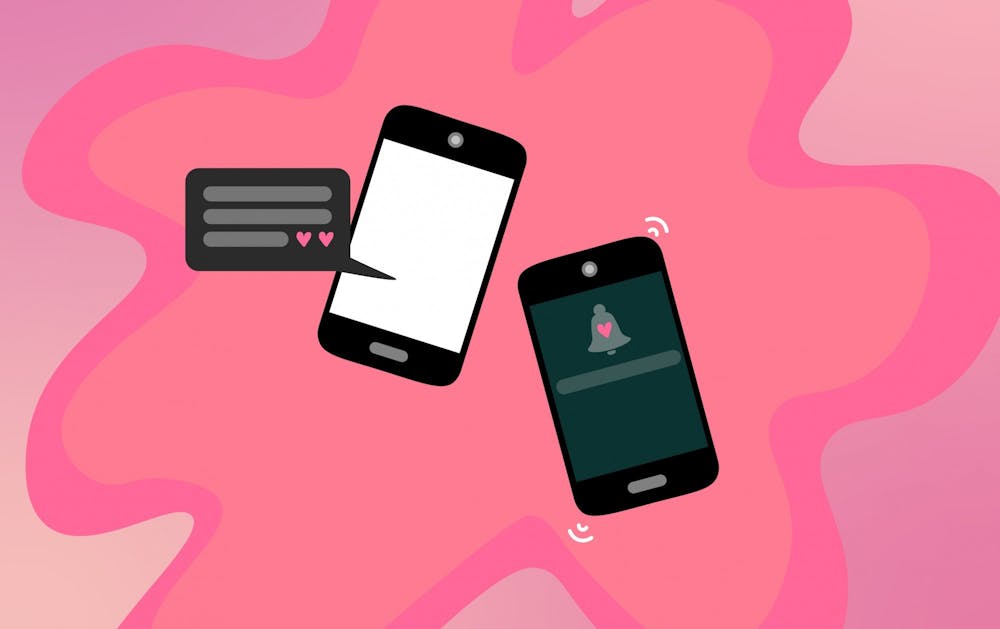As artificial intelligence becomes increasingly powerful and more publicly available, users and developers are exploring additional applications of the technology. Romantic chatbots, also referred to as AI or artificial girlfriends, have recently emerged, gaining suspicious reactions from the public.
However, experts in human relationships are generally hopeful for positive usage of the software, given that it has a couple of key protections.
Avnas Marsh is a clinical sexologist with a doctorate of education in human sexuality. Ze emphasized the wide variety of romantic chatbot users.
"They are for any user of any gender or age who feels drawn to explore fantasy role play with a digital companion," Marsh said in an email. "We don't have demographic data, but anecdotally, it's not just younger men who use them. Some people who are disabled, older, ill or socially isolated may be particularly drawn to them."
According to zir, they can also be beneficial to those suffering from depression or anxiety.
"They provide 24/7 access to positive feedback, and I would venture to say that many, if not most, users find themselves interacting with chatbots as confidantes, among other things. And there are several studies that show positive benefits," Marsh said.
Despite their reported impact on loneliness, other specialists believe that these services aren't a full replacement for real human-to-human relationships.
Liesel Sharabi is an associate professor in the Hugh Downs School of Human Communication. She discussed how AI chatbots could help build confidence in creating new human relationships.
"I think in the current climate when, in the U.S., we're experiencing a loneliness epidemic, people are feeling isolated," Sharabi said. "I don't think replacing human connection is going to be the solution to that. I do think that AI can be helpful for helping people improve their social skills and giving them guidance and feedback and (can) act almost like an assistant in that process."
Sharabi also discussed how, when it comes to dating, a major aspect of connection that AI cannot replace is the physical connection that many people desire.
"When you're talking about dating in particular, there’s a huge physical component," Sharabi said. "Most people don't want to date an AI that only exists in their phone. They want to have a physical relationship with somebody."
While there could be great benefits in romantic contexts and beyond, certain platforms have faced issues with user safety. In February 2023, chatbot program Replika was banned in Italy due to the app's lack of proper data protections of minors.
Marco Behnert is a graduate teaching associate in the Hugh Downs School of Human Communication as well as an incoming assistant professor of communication and technology at the University of Arkansas. He discussed the ethical concerns of both minors accessing AI chatbots and the way their data is handled.
"You either install these packages for protecting minors, especially explicit and erotic content, or you’ll have to shut down," Behnert said. "Replika was unable to do that within the time given, so they removed those features from their apps and everyone globally. That didn't really sit well with users (and) there was a whole lot of outcry online about that."
Despite criticism, Replika still currently exists for download on iOS, Android and Oculus.
Beyond issues of data handling, there are also concerns that users' ages are difficult to verify.
"There's been some controversy around, 'What are minors doing on these apps? Should they be allowed on those apps in the first place?'" Behnert said. "If we're introducing sexual, explicit or erotic content, obviously we need some protection for minors, right? They shouldn't be under 18. But how do we verify that? How do we enforce that? There's a whole lot of controversy around that."
While there are wide potential benefits from using romantic chatbot platforms, ethical concerns still need to be addressed by programmers in order to protect vulnerable users.
Edited by River Graziano, Sadie Buggle, Shi Bradley and Grace Copperthite.
Reach the reporter at hrhea@asu.edu.
Like The State Press on Facebook and follow @statepress on X.

Hunter is a senior studying technological leadership. This is his fourth semester with The State Press. He has also worked as a legislative intern.




